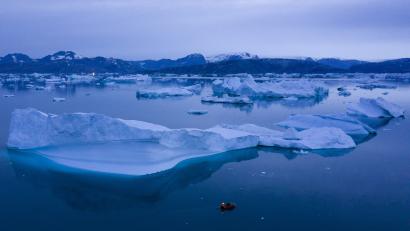
World Oceans Day 2022: Theme, history, importance

The World Oceans Day is observed on June 8 every year to create awareness on the importance of water bodies in preserving Earth’s ecosystem, the long-term effects of activities like dumping plastic, garbage, oil spills in the oceans on the planet, and campaign for the sustainable management of the world’s oceans.
History
The idea to dedicate a day to oceans was pitched by the Oceans Institute of Canada at the Earth Summit of the UN Conference on Environment and Development in 1992. Sixteen years later, in 2008, the UN General Assembly passed a resolution designating June 8 as World Oceans Day.
Theme -2022
The theme for the World Oceans Day this year is “Revitalisation: Collective Action for the Ocean.”
Why oceans need to be protected
The vast expanse of oceans are not only a sight to behold and a spot of recreation, but one of the most vital features of our planet. Here’s how:
Oceans which make 70 per cent of the Earth and hold 97 per cent of its water supply (321 million cubic miles) play a key role in maintaining the planet’s ecosystem.
Oceans, which shelter a vast array of flora and fauna, produce at least 50 per cent of the earth’s oxygen.
Oceans are known as the earth’s natural air conditioner as they make the atmosphere warm in the winter and cool in the summer. The oceans absorb the sun’s heat and around 30 per cent of the carbon dioxide that is produced by humans. This heat is transferred to the atmosphere and evenly distributed across the world, determining global weather patterns and helping in the regulation of temperature on land.
Why oceans are vulnerable?
Despite playing a crucial role in the planet’s ecosystem, oceans have been at the receiving end of erring human behaviour:
Plastic account for 80 per cent of marine debris found on the surface of oceans and deep-sea sediments with at least 14 million tonnes of plastic being dumped in seas every year. The debris suffocate and kill hundreds of marine animals who get entangled in them.
The rise in greenhouse gases in the Earth’s atmosphere is impacting oceans, causing changes in water temperature, ocean acidification and deoxygenation and leading to shifts in oceanic circulation, rise in sea levels – major causes behind increasing frequency of storms and cyclones.
Overfishing, incessant trawling and oil spills have also destroyed the ocean ecosystem, and threatened several species of ocean flora and fauna. Environmentalists say bycatch or the capture of unwanted sea life during fishing is a serious issue today and poses danger of stripping oceans of their marine wealth.


